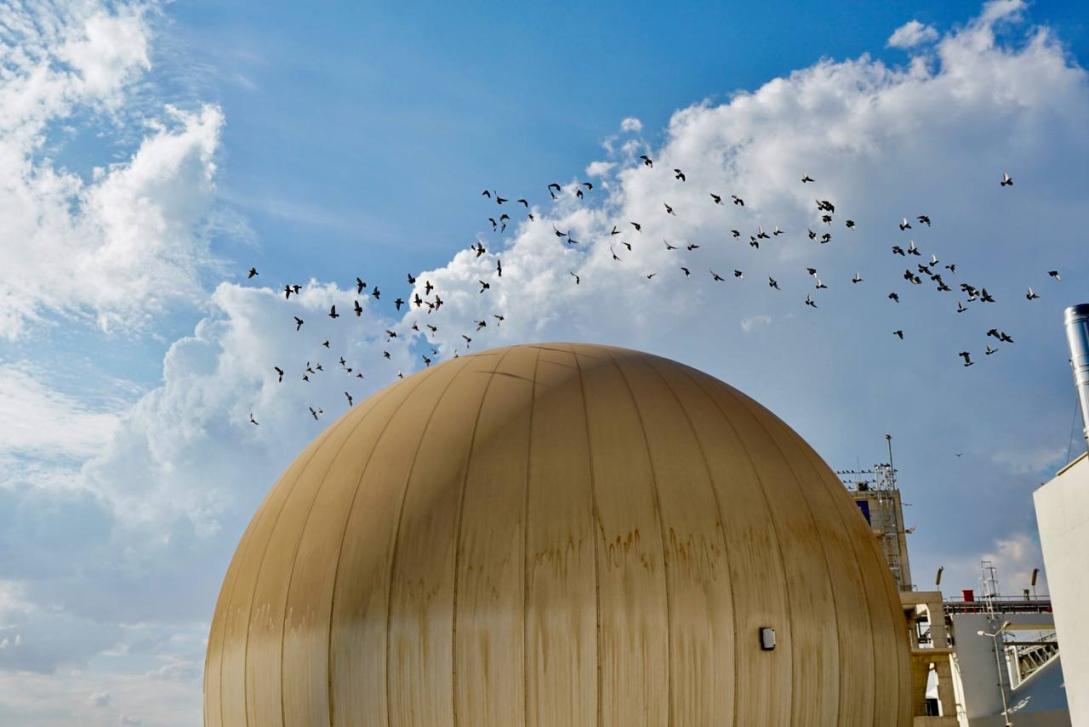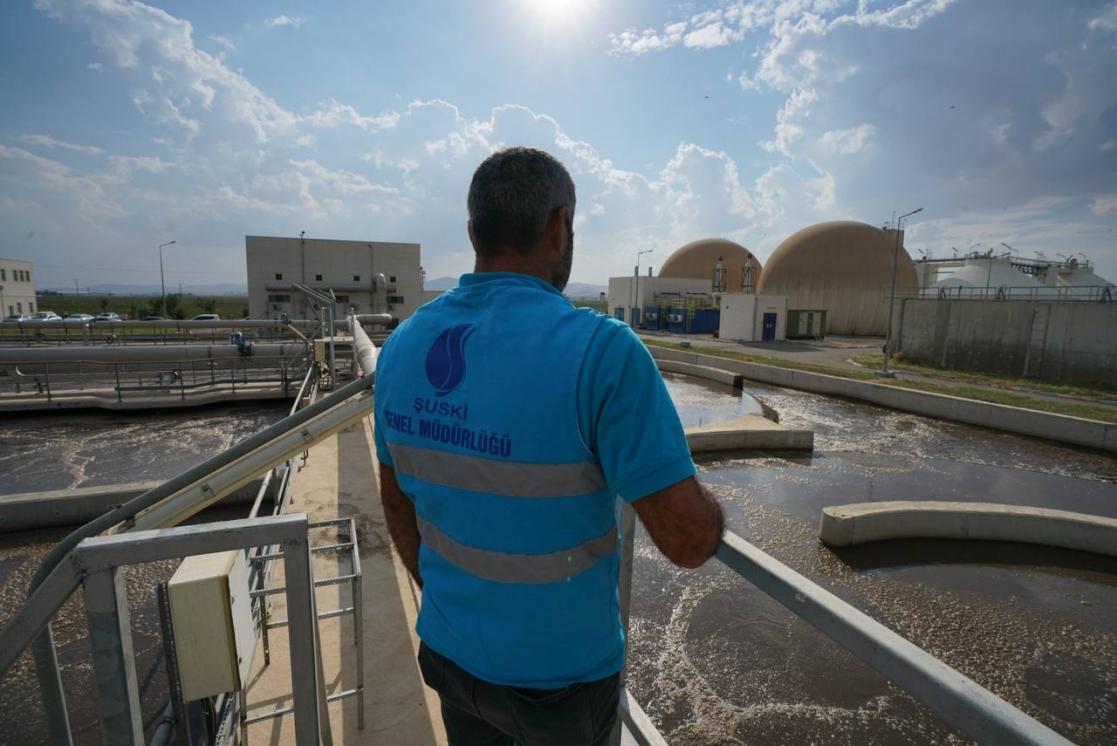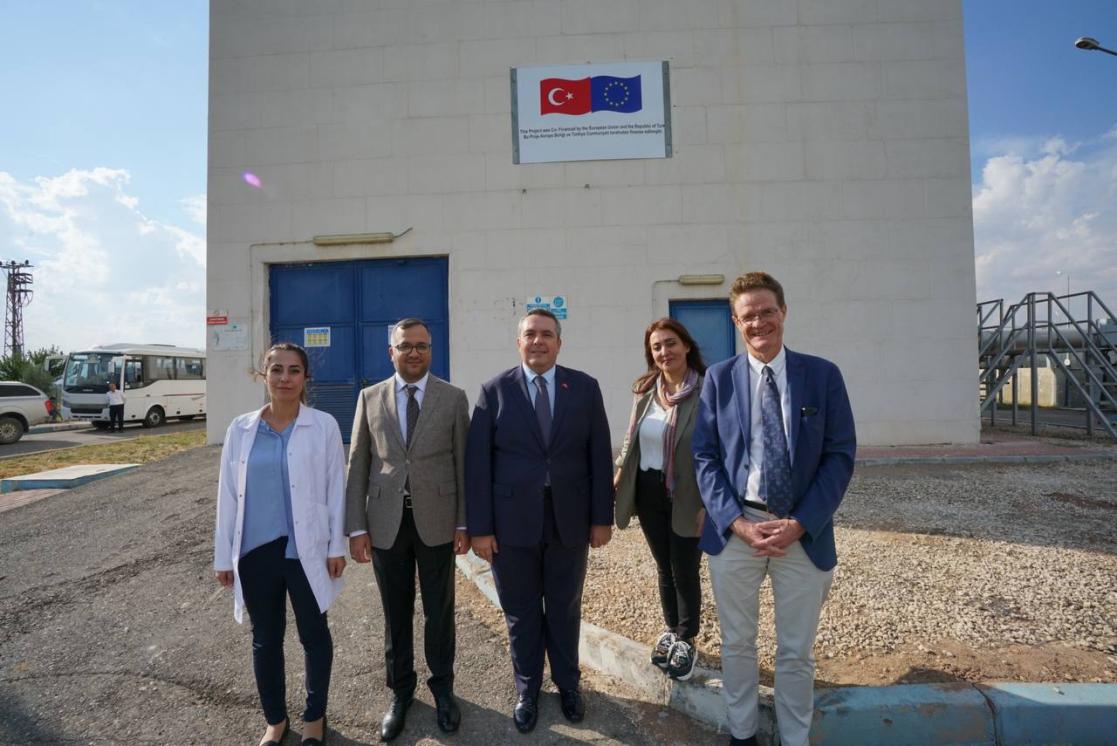EU-funded wastewater plant in Şanlıurfa: a transformative solution for health, agriculture and sustainability

“We didn't let our children play outside because of the risk of them falling ill from wastewater.”
“We suffered from unpleasant odours and an abundance of flies and insects. Currently, there is no presence of flies or unpleasant odours.”
These words belong to three women living near the Wastewater Plant of Şanlıurfa Municipality Water and Sewerage Administration (ŞUSKİ). They are happy to share their impressions about the huge positive changes brought by the EU-funded project.
Pınar Kaya, Şanlıurfa Metropolitan Municipality Wastewater Facilities Branch Manager, confirms: “Wastewater caused microbiological diseases in the region. This plant helps prevent the diseases. Fertiliser production at the facility also benefits the agricultural fields of Municipality.”

DELEGATION OF THE EUROPEAN UNION TO TÜRKIYE
Contrary to popular belief, there is no terrible odour around
This plant is vital for Şanlıurfa because it collects wastewater from 700,000 people and cleans it. Muhammed Said Güllüoğlü, ŞUSKİ General Manager, says: “This is the newest plant in Şanlıurfa; it was put into service five years ago. It has the world's largest solar drying bed and is the unique plant producing fertiliser in Türkiye. The incoming sludge is dried with a long aeration process. The fertiliser produced contains no industrial waste, only domestic and urban waste, because since in 2009, with EU grant, we transformed our waste and sewerage systems from combined to separate systems.”
Şanlıurfa Metropolitan Municipality received a utilisation permit from the Ministry of Agriculture and Forestry for this fertiliser in 2021. Where does the Metropolitan Municipality use the fertiliser?
Yavuz Selim Boyacıoğlu, Şanlıurfa Metropolitan Municipality Head of the Treatment Plants Department, answers this question: “We use this fertilise across the agricultural fields of the Şanlıurfa Metropolitan Municipality. The samples we took in different seasons were analysed by accredited laboratories, including those of TUBITAK, to ensure that the fertiliser wasfree of heavy metals and contaminants. We tested the fertiliser to identify which plant needed what amount of fertiliser. We determined an ideal dose and started using the fertiliser. Previously, we used to pay money to send the sludge elsewhere and to buy fertiliser for our agricultural fields; now, we save these costs. Last year, we saved 55 million Turkish liras only on fertiliser.”

DELEGATION OF THE EUROPEAN UNION TO TÜRKIYE
Ambassador with the plant authorities
The Head of the European Union Delegation to Türkiye, Ambassador Nikolaus Meyer-Landrut, who visited the plant in October 2023, says: “For the EU, infrastructure projects hold significant value. The EU provided 85% of financing for the plant in Şanlıurfa. It is truly gratifying to witness this facility. The project exemplifies the strength of collaboration, innovation, and sustainable practices in bringing concrete benefits for everyone.”
The Şanlıurfa Metropolitan Municipality Waste Water Treatment Plant was built in 2018 within the scope of the EU’s Instrument for Pre-Accession Assistance (IPA) for Türkiye. While treating wastewater, the plant generates electricity in its biogas unit and meets 75% of its own energy needs.
What is IPA?
The Instrument for Pre-Accession Assistance (IPA) is the means by which the EU has been supporting reforms in the enlargement region with financial and technical assistance since 2007. IPA funds build up the capacities of the beneficiaries throughout the accession process, resulting in progressive, positive developments in the enlargement region to which Türkiye belongs.




